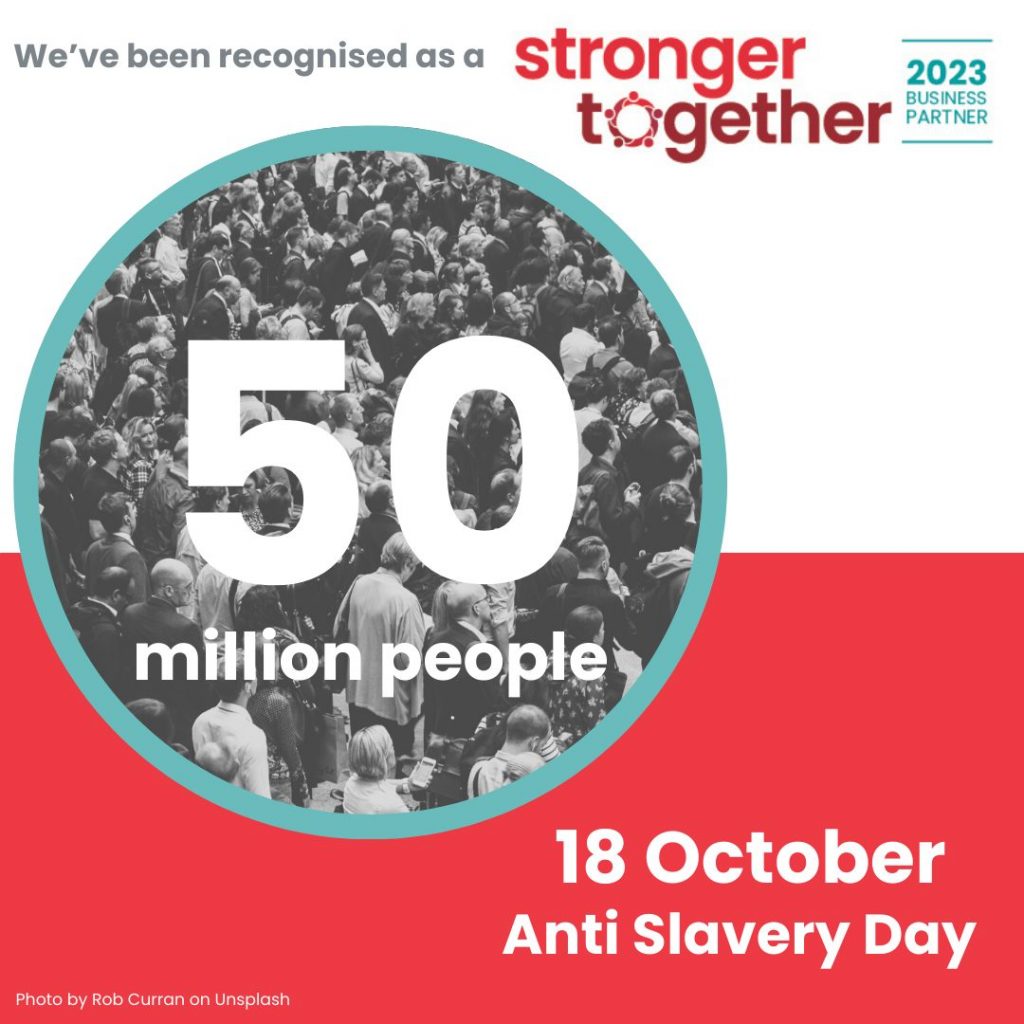Marking Anti-Slavery Day: A Call to End Modern-Day Bondage
Every year on October 18th, people around the world observe Anti-Slavery Day to raise awareness about the persistence of modern-day slavery and to work collectively toward its eradication. This solemn occasion serves as a stark reminder that while the transatlantic slave trade is a thing of the past, the fight against slavery is far from over. It is an opportunity for us to reflect on the progress made and the work still needed to end this heinous crime against humanity.
The Modern Slavery Crisis
Modern slavery encompasses various forms of exploitation, including forced labour, human trafficking, child labour, and sexual exploitation. The International Labor Organization (ILO) estimated in 2021 that there were 49.6 million victims of modern slavery worldwide, and the problem has likely worsened since then.
In the 21st century, slavery continues to thrive due to a variety of factors, including poverty, lack of education, corrupt governance, and insufficient legal protections. Vulnerable populations are often preyed upon by traffickers and unscrupulous employers who trap them in cycles of bondage. Victims are forced to work in hazardous conditions, subjected to physical and emotional abuse, and deprived of their basic human rights.
The Role of Technology in Modern Slavery
As technology has advanced, so too have the means by which modern slavery is perpetrated. The internet and social media platforms are now utilized by traffickers and exploiters to recruit victims, making it easier to conceal their operations and evade law enforcement.
Additionally, supply chains of multinational corporations are often opaque and complex, which creates opportunities for the exploitation of workers in the lower tiers. Consumers unwittingly purchase products tainted by forced labour, unknowingly contributing to this global issue. Therefore, the fight against modern slavery requires the collaboration of governments, businesses, and civil society to ensure that ethical and transparent supply chains are the norm.
Progress Made and Challenges Ahead
Efforts to combat modern slavery have gained momentum in recent years. Many countries have adopted legislation to criminalise slavery and human trafficking, and international conventions have been established to promote cooperation among nations. NGOs and activists continue to raise awareness about the issue, and organizations like the United Nations have declared their commitment to eradicating modern slavery.
Despite these positive developments, there are numerous challenges ahead. Enforcement of anti-slavery laws is inconsistent in many countries, and the lack of resources allocated to combat this issue remains a barrier to progress. Moreover, the COVID-19 pandemic exacerbated the vulnerability of marginalized communities, making them even more susceptible to exploitation.
The Way Forward
On Anti-Slavery Day, we must renew our commitment to combating modern slavery on all fronts. Here are some steps that individuals, governments, and organisations can take to make a difference:
- Education and Awareness: Raising awareness is crucial. Individuals can educate themselves and others about modern slavery to help identify and report cases.
- Support Anti-Slavery Organisations: Consider supporting organizations and NGOs that are actively involved in rescuing and rehabilitating victims of modern slavery and advocating for policy changes.
- Ethical Consumerism: Choose products and services that have transparent supply chains and support companies with responsible labour practices.
- Advocacy: Pressure governments to allocate more resources for anti-slavery efforts and push for stronger legislation to combat this issue.
- Employer Responsibility: Businesses should ensure their supply chains are free from forced labour and engage in responsible sourcing.
- Victim Support: Providing support and rehabilitation services for survivors is essential to their recovery and reintegration into society.
Conclusion
In a world where modern slavery and exploitation still persist, our pledge to responsible recruitment is not just a mere promise but a fundamental mission. We understand the gravity of these issues and the devastating impact they have on individuals and communities. Therefore, we take a strong stance against any form of exploitation, ensuring that every step in the recruitment process aligns with the highest standards of integrity and fairness.
Anti-Slavery Day serves as a stark reminder of the work that remains in the fight against modern slavery. While progress has been made, the challenges are immense. We must remain vigilant and committed to ending this grave violation of human rights. By working together on the local, national, and international levels, we can create a world where every individual can live a life of freedom and dignity, free from the shackles of modern slavery.
